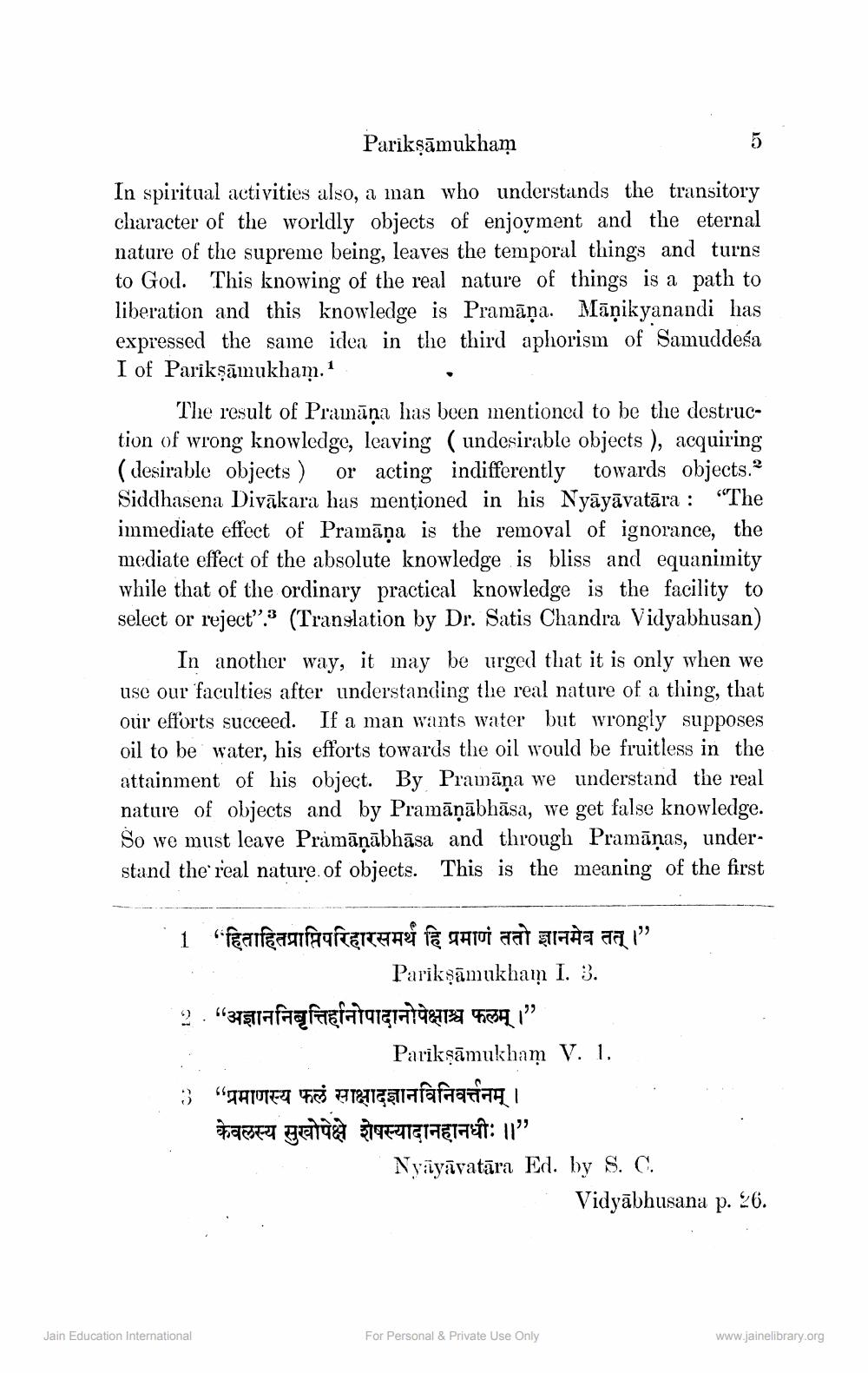________________
Parikṣāmukham
In spiritual activities also, a man who understands the transitory character of the worldly objects of enjoyment and the eternal nature of the supreme being, leaves the temporal things and turns to God. This knowing of the real nature of things is a path to liberation and this knowledge is Pramāņa. Māņikyanandi has expressed the same idea in the third aphorism of Samuddeśa I of Parikṣamukham.1
The result of Pramāņa has been mentioned to be the destruction of wrong knowledge, leaving (undesirable objects), acquiring (desirable objects) or acting indifferently towards objects. Siddhasena Divakara has mentioned in his Nyāyāvatāra : "The immediate effect of Pramāņa is the removal of ignorance, the mediate effect of the absolute knowledge is bliss and equanimity while that of the ordinary practical knowledge is the facility to select or reject" (Translation by Dr. Satis Chandra Vidyabhusan)
In another way, it may be urged that it is only when we use our faculties after understanding the real nature of a thing, that our efforts succeed. If a man wants water but wrongly supposes oil to be water, his efforts towards the oil would be fruitless in the attainment of his object. By Pramana we understand the real nature of objects and by Pramāṇābhāsa, we get false knowledge. So we must leave Pramāṇābhāsa and through Pramāņas, understand the real nature of objects. This is the meaning of the first
1 " हिताहितप्राप्तिपरिहारसमर्थ हि प्रमाणं ततो ज्ञानमेव तत् । " Parikṣamukham I. 3.
2. “अज्ञान निवृत्तिनोपादानोपेक्षाच फलम् ।”
Parikṣāmukham V. 1.
3 " प्रमाणस्य फलं साक्षादज्ञान विनिवर्त्तनम् । केवलस्य सुखोपेक्षे शेषस्यादानहानधीः || ”
Jain Education International
5
Nyayavatara Ed. by S. C.
For Personal & Private Use Only
Vidyabhusana p. 26.
www.jainelibrary.org




